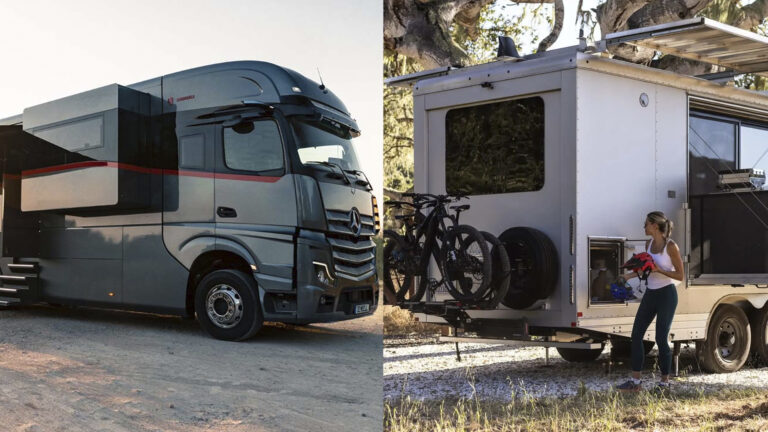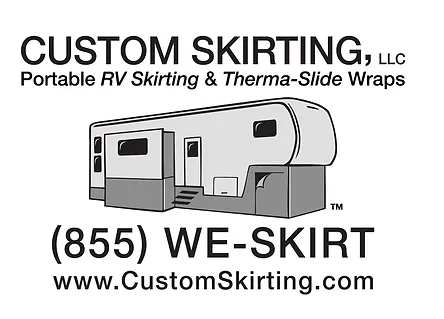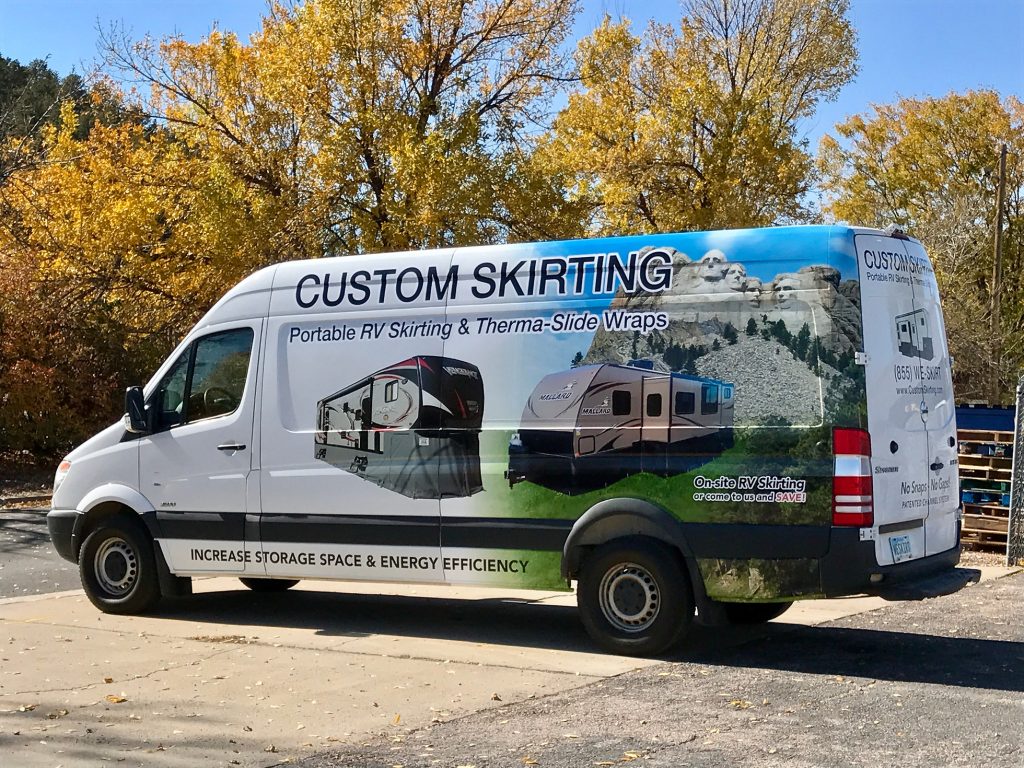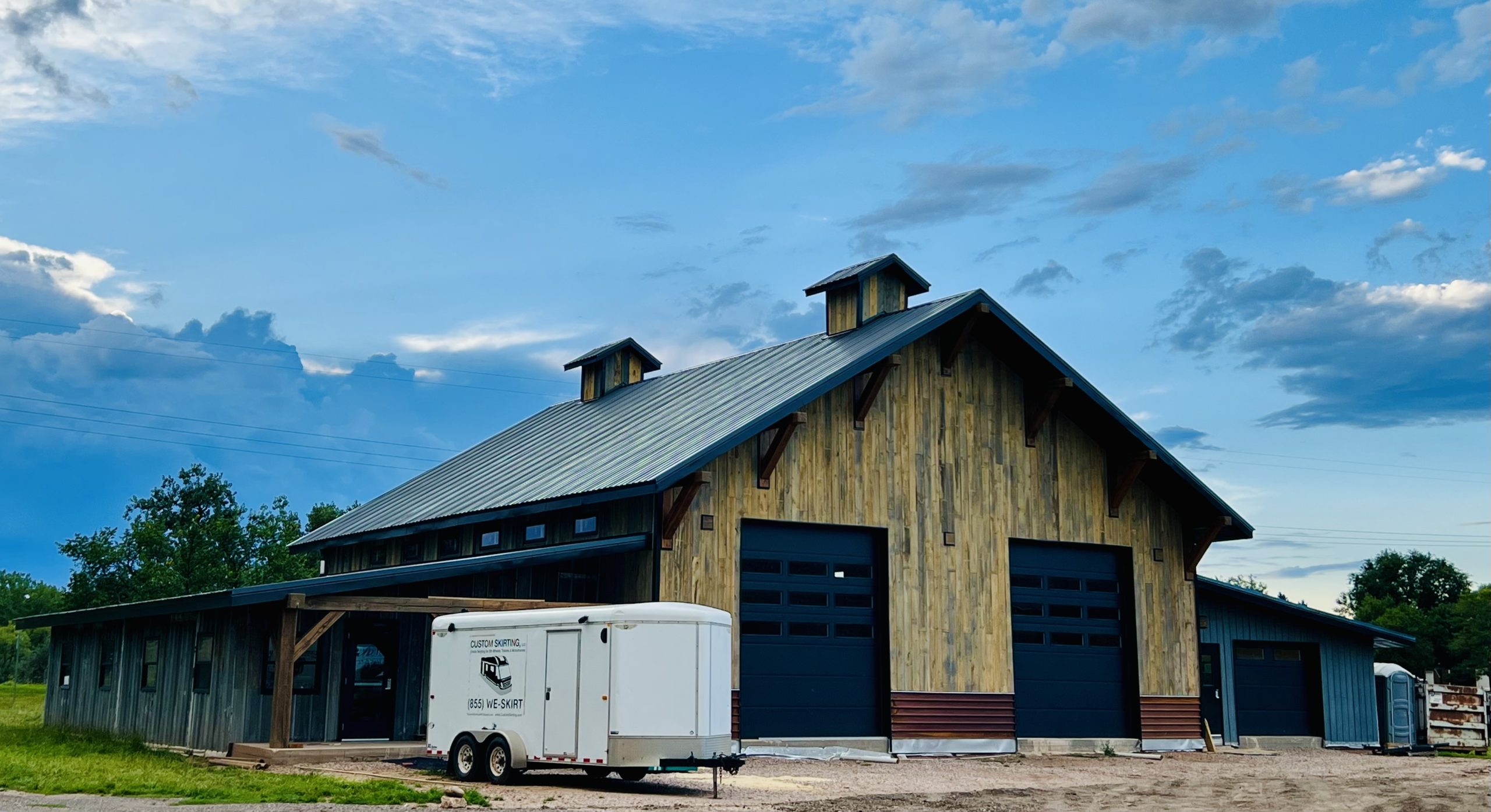Table of contents
RV travel is more popular than ever, with families and adventurers alike hitting the open road to explore nature and new destinations. One of the biggest decisions for those looking to embark on the RV lifestyle is choosing between a motorhome vs travel trailer. Both options have their unique advantages, and the choice between a motorhome vs trailer can significantly impact your overall travel experience. This guide will walk you through the differences between a motorhome or travel trailer, helping you determine which one best suits your needs and lifestyle.
Understanding Motorhomes and Travel Trailers
What is a Motorhome?
A motorhome is an all-in-one vehicle that combines transportation and living quarters into a single unit. Unlike travel trailers, motorhomes have a built-in engine, allowing you to drive them without the need for a separate tow vehicle. Motorhomes come in three main classes:
- Class A: The largest and most luxurious motorhomes, often resembling buses. They offer spacious interiors and high-end amenities, making them ideal for extended travel or full-time RV living.
- Class B: Also known as camper vans, these are smaller, more compact motorhomes built on van chassis. They are great for solo travelers or couples looking for a more nimble and fuel-efficient option.
- Class C: A middle ground between Class A and Class B, Class C motorhomes are built on a truck or van chassis and offer a balance between space and maneuverability.
What is a Travel Trailer?
A travel trailer is a towable RV that requires a separate vehicle for transportation. Travel trailers come in various shapes and sizes, allowing for a lot of flexibility in terms of layout and price point. Some popular types of travel trailers include:
- Conventional Travel Trailers: The most common type, available in a wide range of sizes. These trailers are towed by a vehicle using a standard hitch.
- Fifth Wheels: Larger trailers that connect to a special hitch in the bed of a pickup truck. Fifth wheels offer more living space and stability when towing.
- Pop-Up Campers: Smaller, foldable trailers that are lightweight and easy to tow. They are ideal for weekend campers or those with smaller tow vehicles.
Key Factors to Consider When Choosing Between Motorhomes and Travel Trailers
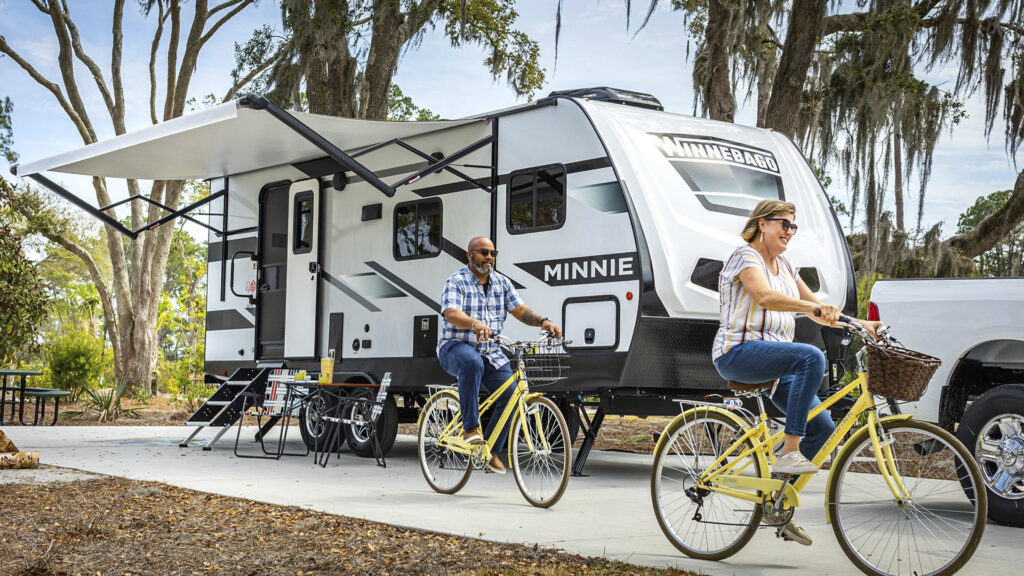
Initial Costs and Budget
When comparing motorhome vs travel trailer, one of the first things to consider is your budget. Motorhomes tend to be more expensive upfront because they combine the living space and vehicle into one unit. For example:
- Class A motorhomes can range from $100,000 to over $500,000, depending on the size and amenities.
- Class C motorhomes are typically less expensive, starting around $60,000 but can still go upwards of $150,000.
On the other hand, travel trailers can be a more affordable option:
- Conventional travel trailers range from $20,000 to $60,000.
- Fifth wheels are usually more expensive, ranging from $50,000 to $150,000.
However, when choosing a travel trailer vs motorhome, you need to factor in the cost of a tow vehicle. If you don’t already own a suitable truck or SUV, this could add significantly to the overall cost of a travel trailer or motorhome setup.
Driving Experience and Maneuverability
One of the most significant differences between a motorhome vs trailer is the driving experience. Driving a motorhome can feel more like operating a large vehicle or bus, especially with Class A motorhomes, which may take time to get used to. Parking a motorhome in tight spaces can also be challenging.
Towing a travel trailer requires different skills. You’ll need to master hitching, backing up, and maneuvering with a trailer in tow. While smaller trailers can be easier to tow, larger fifth wheels or longer travel trailers may feel cumbersome on the road.
Flexibility and Convenience
When it comes to motorhome or travel trailer, convenience plays a significant role. Motorhomes offer greater flexibility for quick stops. You can pull over, grab something from the fridge, or use the bathroom without needing to exit the vehicle. This makes them ideal for travelers who are constantly on the move or families with young children.
In contrast, travel trailers require you to disconnect the tow vehicle to run errands or go sightseeing once you’re parked. However, this can also be a benefit if you prefer to have a separate vehicle for day trips or exploring more remote areas.
Living Space and Amenities
Another important consideration when choosing between travel trailer vs motorhome is the living space and amenities. Generally, motorhomes offer a more integrated living experience with features like slide-outs that increase the living area when parked.
Travel trailers, particularly fifth wheels, often provide more spacious layouts with separate living areas, kitchens, and bedrooms. You can find travel trailers with similar amenities to motorhomes, including full bathrooms, kitchens, and entertainment systems, but they often come at a lower price point.
Fuel Efficiency and Operating Costs
Fuel efficiency is a major factor when deciding between a motorhome vs trailer. Motorhomes, particularly larger Class A and C models, tend to consume more fuel. Their larger size and built-in engine make them less fuel-efficient than a standard car or truck towing a travel trailer.
A travel trailer paired with a fuel-efficient tow vehicle can often result in lower operating costs in the long run. However, remember that towing a heavy trailer can reduce the fuel efficiency of your tow vehicle, so it’s important to consider the size and weight of your trailer when making a decision.
Lifestyle Considerations
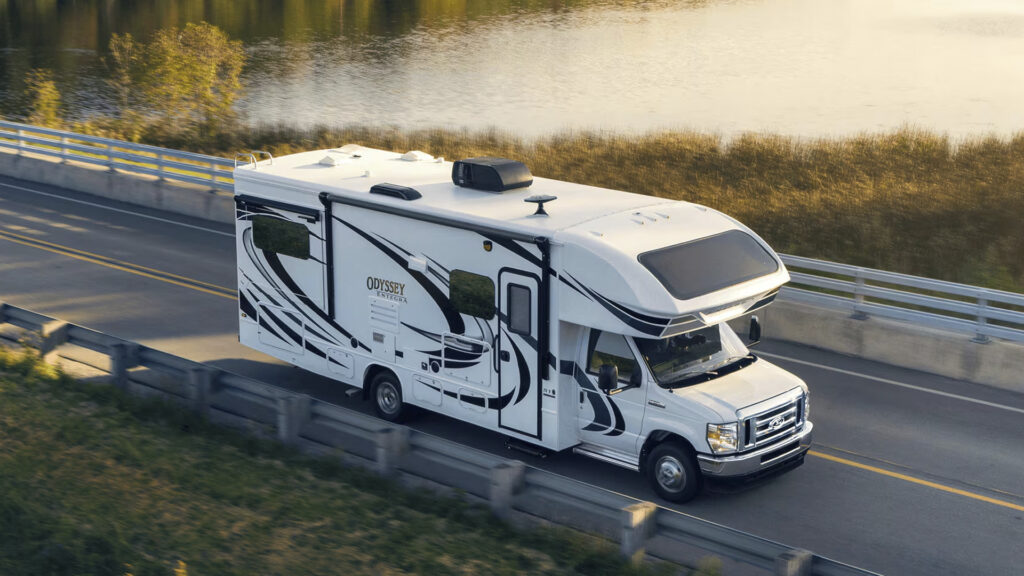
Full-Time Living vs. Occasional Use
Your RV lifestyle plays a big role in determining whether a motorhome or travel trailer is the better option for you. If you plan to live full-time in your RV, a motorhome may offer more convenience, especially when it comes to mobility and quick setup at campsites.
For those who plan to use their RV for weekend trips or vacations, a travel trailer may be more practical, especially if you already own a tow vehicle.
Boondocking and Off-Grid Capabilities
Boondocking, or camping off-grid without hookups, is becoming more popular among RV enthusiasts. When comparing motorhome vs travel trailer for off-grid camping, there are several things to consider. Motorhomes typically have larger built-in generators, bigger water tanks, and more battery capacity, making them better suited for extended periods off-grid.
However, travel trailers can be easily outfitted with solar panels, portable generators, and additional battery storage, making them viable options for boondocking as well.
Maintenance and Repairs
Maintenance and repairs are important factors when comparing a motorhome vs trailer. With a motorhome, you’ll need to consider both vehicle maintenance and RV repairs, including engine upkeep, oil changes, and tire replacement. This can add up to higher maintenance costs over time.
For travel trailers, maintenance is generally limited to the living area and the tow vehicle, keeping costs lower. However, if your tow vehicle requires repairs, you won’t be able to tow your trailer until it’s fixed.
Insurance and Legal Considerations
Insurance rates and legal requirements vary for motorhomes vs travel trailers. Motorhomes generally have higher insurance costs due to their higher value and the fact that they include both the vehicle and living quarters. Licensing and registration requirements for motorhomes also tend to be more stringent.
Travel trailers typically have lower insurance costs, as the tow vehicle and trailer are insured separately. However, depending on the size of your trailer, you may still need special permits or endorsements to tow it legally.
Resale Value and Long-Term Investment
When comparing travel trailer vs motorhome for resale value, motorhomes tend to depreciate faster due to the engine and vehicle components. Larger motorhomes, especially Class A models, can lose a significant portion of their value in the first few years.
Travel trailers, on the other hand, tend to hold their value longer because they don’t have built-in engines that depreciate. This can make them a better long-term investment for those concerned about resale value.
Ready to Hit the Road? Stay at Black Hawk Creek RV Park!
Whether you choose a motorhome or travel trailer, your RV adventure deserves the perfect home base. Black Hawk Creek RV Park & Cabins offers the ideal spot for exploring South Dakota’s iconic attractions. Just minutes from Mount Rushmore, the Badlands, and Rapid City, our park is ready to welcome you with open arms. Book your stay today and experience the best of RV travel with unmatched comfort and convenience!



